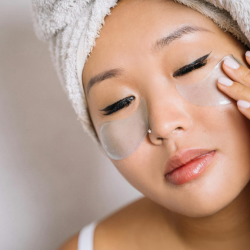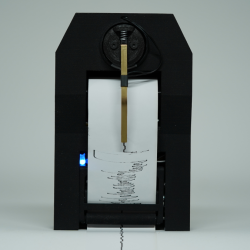Are we living in an age of inequality? Yes!
Especially for women and non-binary people. At the current rate of progress it would take another 286 years to achieve gender equality, a shocking and unacceptable fact! This means that not only do we have zero chance of meeting the 2030 UN Sustainable Development Goals deadline for the same — but in some respects, progress is in reversal.
The pandemic laid bare many inequalities including the gender gap, with women and non-binary people not only losing more jobs and at a faster rate than men — but remaining out of the job market for longer. In addition, they experienced an increase in domestic violence and unpaid care duties. This ‘gap’ and disparity doesn’t add up when you look back at education and the potential for equality. Despite girls achieving consistently higher results than boys at school since the 1980s — and today being 35% more likely to apply to university — by the time they make it into the professional world, men wield the power.
According to the recent ONS Employment and Labour Market report, the hourly wage of mothers is just 72% of the hourly wage of fathers — correlating care duties to stalled career progress. Also, recent research from the campaign group Pregnant Then Screwed shows 54% of women worked less hours due to the financial cost of childcare (up from 43% in 2022). These represent just some of the reasons why women and non-binary people are less likely to make it into the highest-paid roles and therefore hold less economic power.
Today, there are just 8 women at the helm of UK FTSE 100 companies — and the gender pay gap stands at a whopping 15%.
Even from a healthcare standpoint — despite gaining more control over fertility since the 1961 contraceptive pill, women’s healthcare remains heavily underfunded, leaving people who experience a period, to suffer unduly with the symptoms of menstrual bleeding, endometriosis and the inevitable menopause.
Furthermore, new analysis by a clinical psychologist at Oxford University proves women are up to 40% more likely than men to develop mental health conditions. Ironically, The Gender Pain Gap Index Report reveals 56% of women feel their pain is ignored or dismissed by healthcare professionals, as a dramatisation or due to ‘emotional sensitivities’.
With findings like these mirrored in the workplace, it comes as no surprise that the Chartered Institute of Personnel and Development (CIPD)’s research, created in partnership with Bupa, cites almost a million women leaving their jobs in the UK because of menopausal symptoms.
Honing in on the creative industries — of the 56% women and non-binary people making up the ecosystem, 10% resigned in 2021 before reaching anywhere near retirement age.
But why are women and non-binary people leaving the industry?
SheSays, the global careers and mentorship network supporting this very demographic, ran a survey to uncover the real reasons for attrition — and the findings were stark. 76% cited leaving roles due to increased mental health issues around stress, anxiety and depression. Whilst 85% attributed a lack of support from their company to negative professional outcomes.
Using dark humour, the respondents’ real-life accounts were turned into brutally honest resignation letters — to campaign against the ordeals still being faced by women and non-binary people today and to give voice to those unable to speak out.
The letters expose shocking lived experiences around sexual harassment, racism, mental health issues, sexism and the menopause — all issues already highlighted by Mental Health First Aid England, their campaign partner, as under-supported. When asked to share thoughts on the ways companies need to evolve, here’s what respondents had to say:
- Practise a culture of true inclusion of all people including neurodivergence, race, culture, gender, sexual orientation, disability and more
- Actively and humbly listen when flags are raised — in order to glean the necessary insights and understanding to drive solutions and internal change
- Create policies and processes that uphold a zero tolerance culture for all forms of discrimination and their related behaviours. This includes policies for equal pay and blind recruitment
- Actively nurture the professional growth of women and non-binary people across all levels — and consistently work to build their confidence, especially through difficult times
- Create sustainable and actionable frameworks for company-wide work-life balance
- Allow for 360-degree feedback loops that hold leadership to account
- Mandate mental health and well-being training for all managers to safeguard line reports and to produce better leadership
- Over-communicate employee rights and the availability of support resources
Until as a society, we manage to cultivate a safe and nurturing environment where all women and non-binary people can thrive — and true equality is achieved, there can only be discontent. To usher in this new era, it’s a collective effort by all to drive change, day by day.
Featured image: Jakayla Toney / Unsplash


































